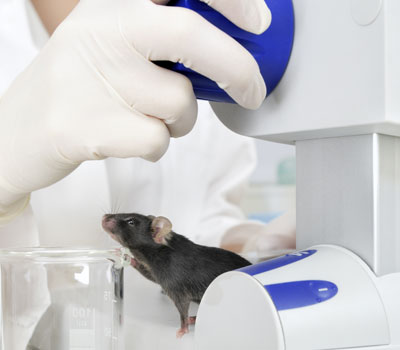Centre for Law and Genetics
Material Transfer
Material Transfer Agreements and the Genomic Research Commons
External Collaborators: Prof Tim Caulfield, A/Prof Tania Bubela, Prof John Walsh , Prof Richard Gold
UTAS Collaborators: Office of Business Development and Technology Transfer
Funding Source: ARC Discovery Grant
Project Duration: 2014-2017
Project Status: Completed
Researchers
Research Background
 There are great expectations that research in the 'Genomic Era' (Collins 2010) will lead to the development of innovative products and processes in human healthcare, agriculture, the environment and industry. Government policy in many developed nations, including Australia, expressly supports this research direction. A feature of the early stages the biotechnology revolution in the 1980s and 1990s was an increase in collaborations between academia and industry, usually accompanied by transfer of intellectual property rights and essential biological research materials. Like intellectual property rights, exchanges of materials became increasingly formalised during this time, acquiring the generic label of Material Transfer Agreements (MTAs).
There are great expectations that research in the 'Genomic Era' (Collins 2010) will lead to the development of innovative products and processes in human healthcare, agriculture, the environment and industry. Government policy in many developed nations, including Australia, expressly supports this research direction. A feature of the early stages the biotechnology revolution in the 1980s and 1990s was an increase in collaborations between academia and industry, usually accompanied by transfer of intellectual property rights and essential biological research materials. Like intellectual property rights, exchanges of materials became increasingly formalised during this time, acquiring the generic label of Material Transfer Agreements (MTAs).
How these formalised MTAs operate in an era of open science remains unclear. In particular, it is not clear whether MTAs facilitate or stifle collaborative research in the emerging genomic research commons.
About the Project
This project aimed to examine the history, development, use and impact of MTAs by Australian universities, research institutes, companies and scientists. This included a plan to undertake a doctrinal analysis of relevant issues in contract law and intellectual property law. Finally we will made recommendations to law and policy to ensure ethical, efficient and effective exchange of materials nationally and internationally.
Research Output
This project produced recommendations on how MTAs may better promote exchanges of materials in the increasingly collaborative academic and industry contexts.
This includes how improvements may be made internationally such as recommendations for best practice implementation. A report was prepared for relevant agencies, principally the ARC and NHMRC, and Australian industry organisations but also international organisations, including the NIH, OECD and ISBER.
We are also interested in the potential for an Australian standard MTA. If there is a finding that this would be useful, we hope to create such a document based on the data we have gathered throughout the project.
